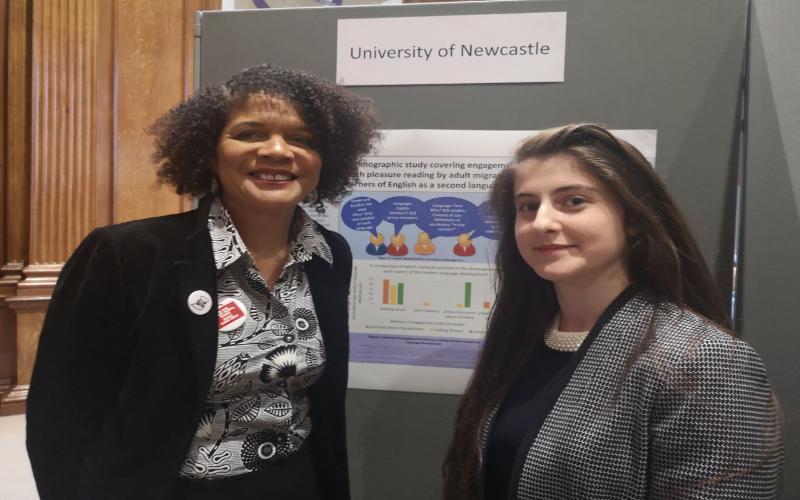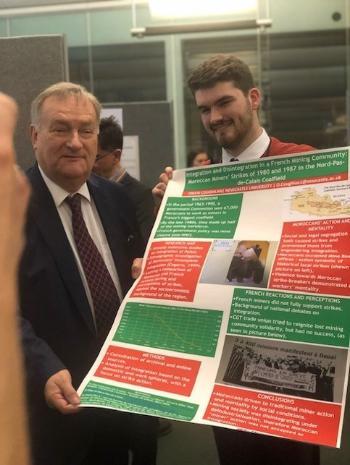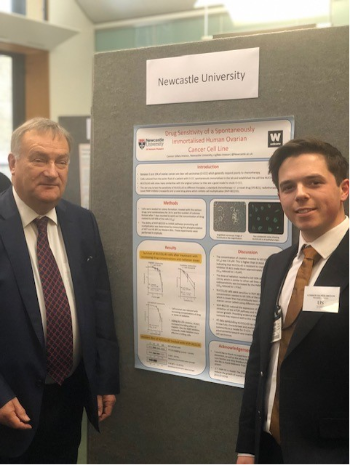Posters in Parliament
Posters in Parliament (PiP) is organised by the British Conference of Undergraduate Research (BCUR), and is inspired by the US 'Posters on the Hill' event. Professor Paul Taylor, Chair of the BCUR, describes PiP as 'one of the very best opportunities for Parliamentarians and policy makers to experience the extraordinary talents being nurtured on campuses nationwide.' Universities participating in the BCUR conference are invited to send two students to PiP to showcase their research in Parliament.
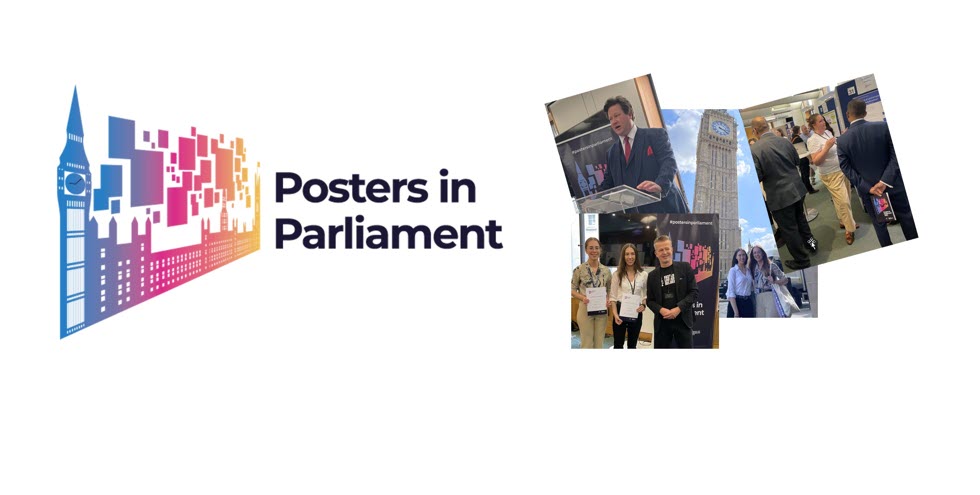
2024 Posters in Parliament Event
Since 2013 Newcastle University has been proud to be a regular participant in events organised by the British Conference of Undergraduate Research. It has a main conference around Easter, and Posters in Parliament in Westminster, which this year took place on 28 February.
Andrew Davison and Megan Groves (School of Biomedical, Nutritional and Sport Sciences) represented the University there, and did us proud. They had the following reflections on their day:
‘Posters in Parliament—PiP—was incredible. My poster was ‘Quantum Tunnelling in Glycine Receptors: a Mathematical Model’, but the exhibition enabled me to learn about the wide variety of research conducted by other students across numerous disciplines, from education and politics to chemistry and physics. Although it was rather intimidating to present my research to civil servants, MPs and other researchers, it helped me identify ways to improve and apply my research in ways I hadn’t previously considered. One idea that was suggested was to investigate whether quantum tunnelling through ion channels in the spinal cord could contribute to altered pain sensitivity in stroke patients.
‘I would highly recommend PiP to any student interested in presenting research and networking with other like-minded students across various fields. I would also like to add that if you have a project which you have researched in your spare time (but wasn’t officially associated with your university) and about which you are very passionate, it’s always worth submitting it to PiP!
‘Finally, I want to thank Newcastle University for giving me this fantastic opportunity!’
Andrew Davison, Stage 3, BSc (Hons) in Biomedical Sciences
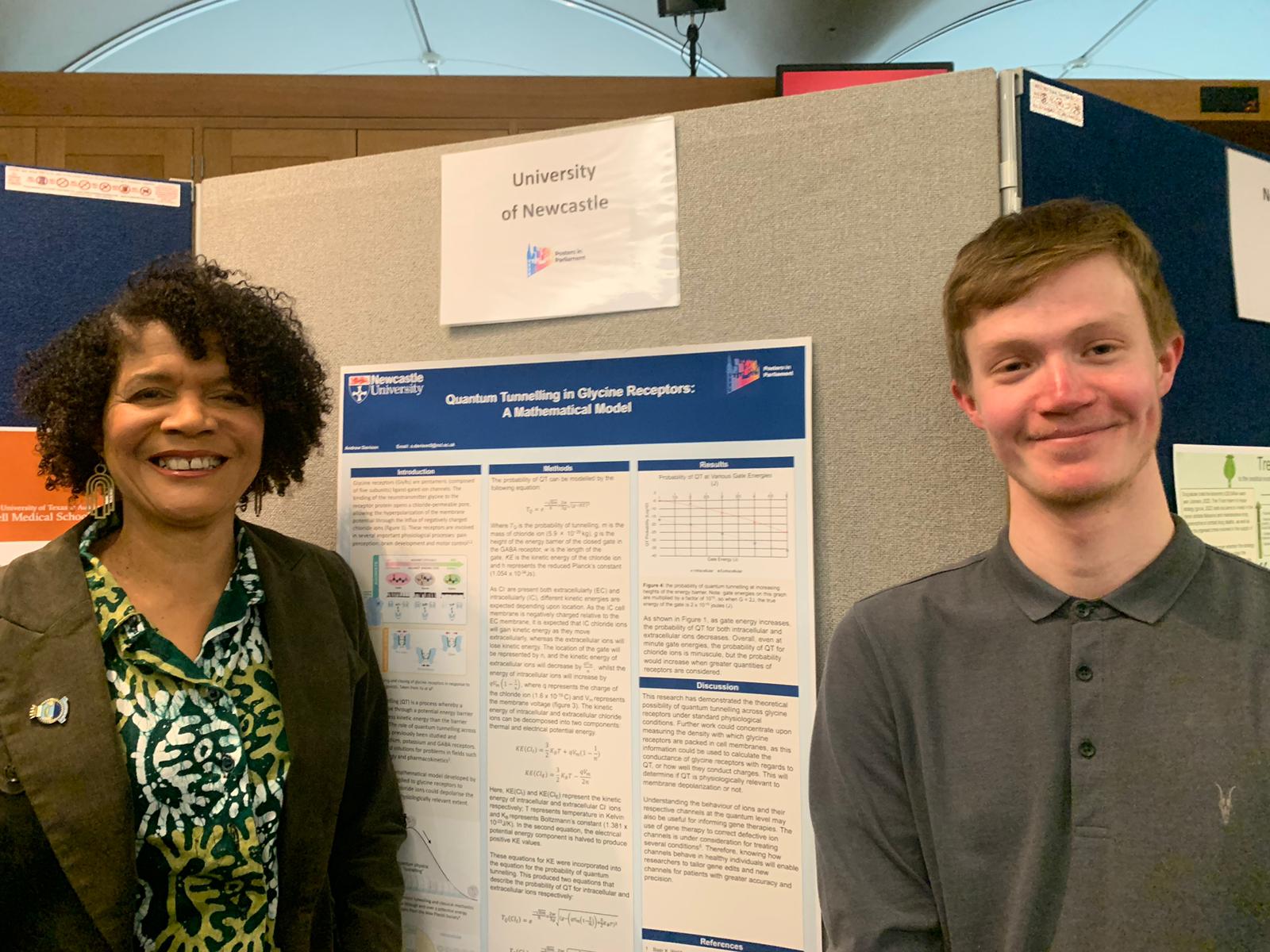
Andrew Davison and Chi Onwurah MP with Andrew’s poster
‘At Posters in Parliament (PiP) at the end of February, I presented a poster on Development of a Step-by-Step Freeware Solution for 3D Rendering of Congenital Heart Disease Images. I felt very lucky to be able to attend and it was an extremely enriching experience. What an incredible opportunity, to be able to showcase my research in a new and exciting environment, surrounded by loads of similarly driven students from across the country! We had the chance to meet a number of researchers, scientists, civil servants and MPs – including Chi Onwurah, the MP (Labour) for Newcastle upon Tyne Central, where the University is--and it was a privilege to be able to discuss our research and experience with all of them.
‘I strongly encourage anyone who has participated in some research, whether through the university or as a separate passion project, to submit their work for the BCUR and PiP conferences. The PiP experience was invaluable and I cannot recommend it enough!
Thank you very much to the university for granting me this opportunity. I had a great time!’
Megan Groves, Stage 2, BSc (Hons) in Biomedical Genetics
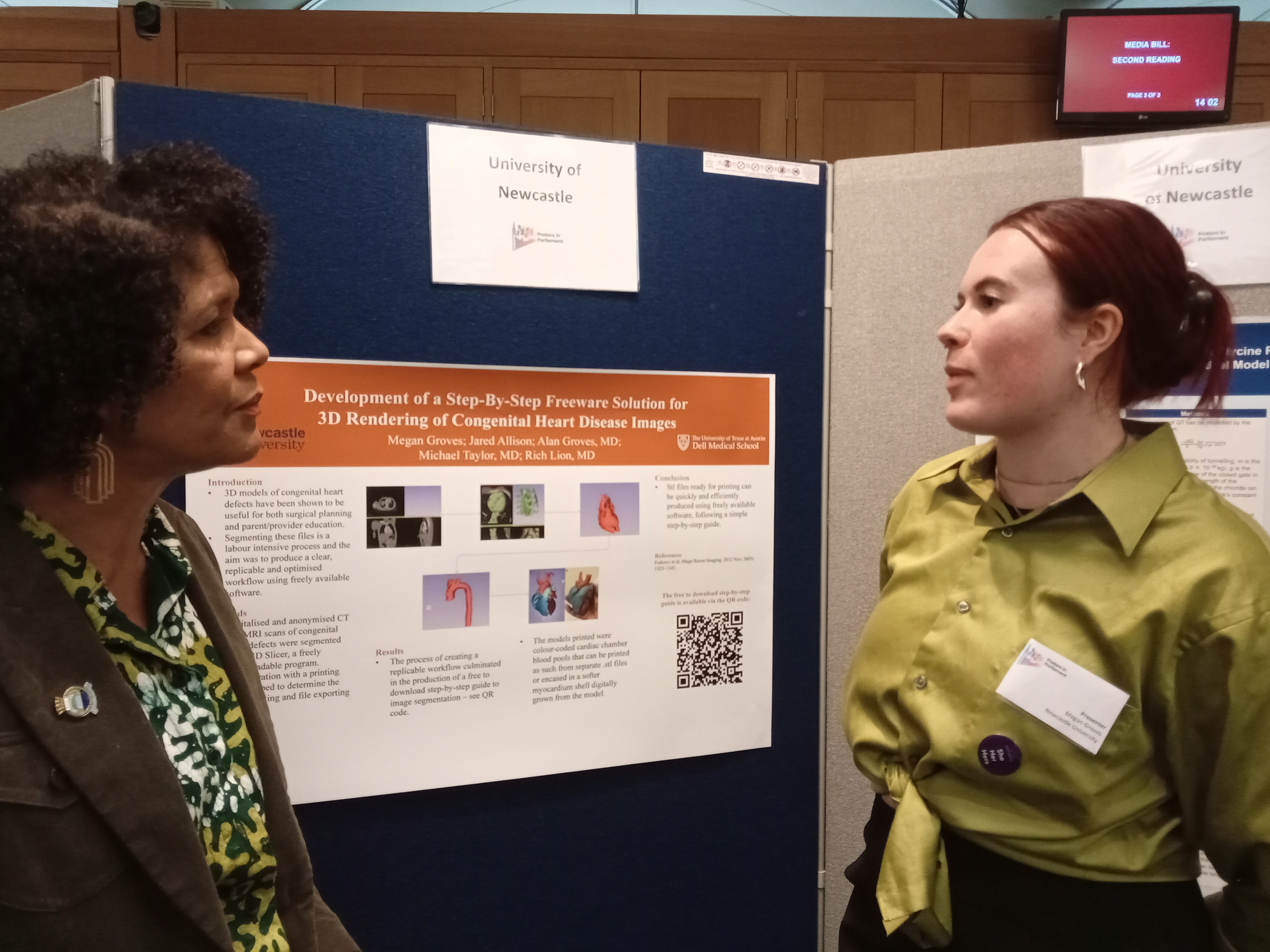
Megan Groves discusses her poster with Chi Onwurah MP
Damien Hall, the lecturer who accompanied Andrew and Megan to PiP, adds: ‘Megan and Andrew did Newcastle University, and the School of Biomedical, Nutritional and Sport Sciences, proud at Posters in Parliament this year. Special congratulations must go to Megan, as a non-final-year student, but both students should be heartily commended. We thank them on behalf of the University for representing us so well, and wish them all the best for the future.’
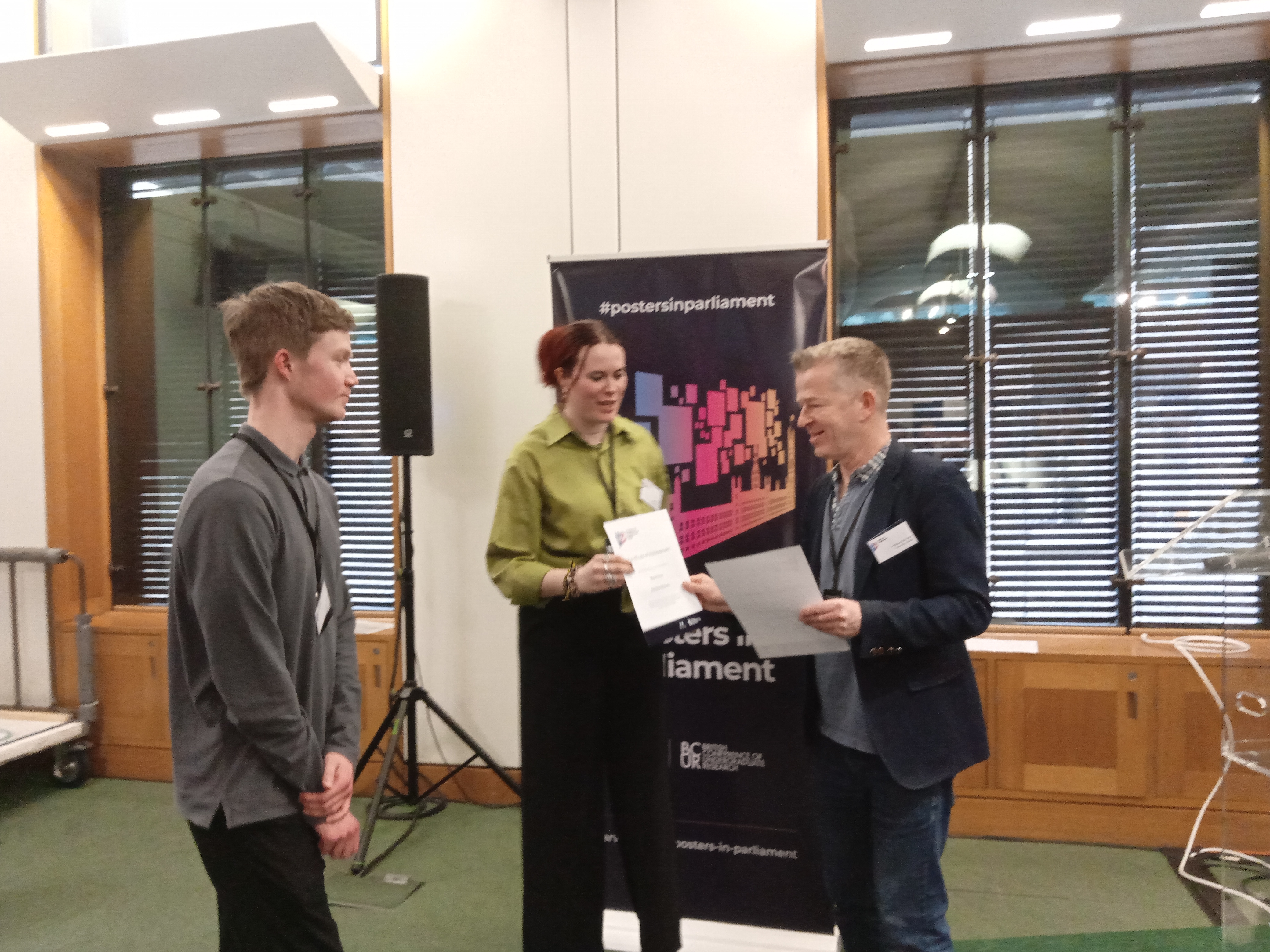
Andrew and Megan being presented with Certificates of Achievement by the Chair of BCUR, Prof. Paul Taylor (Leeds)
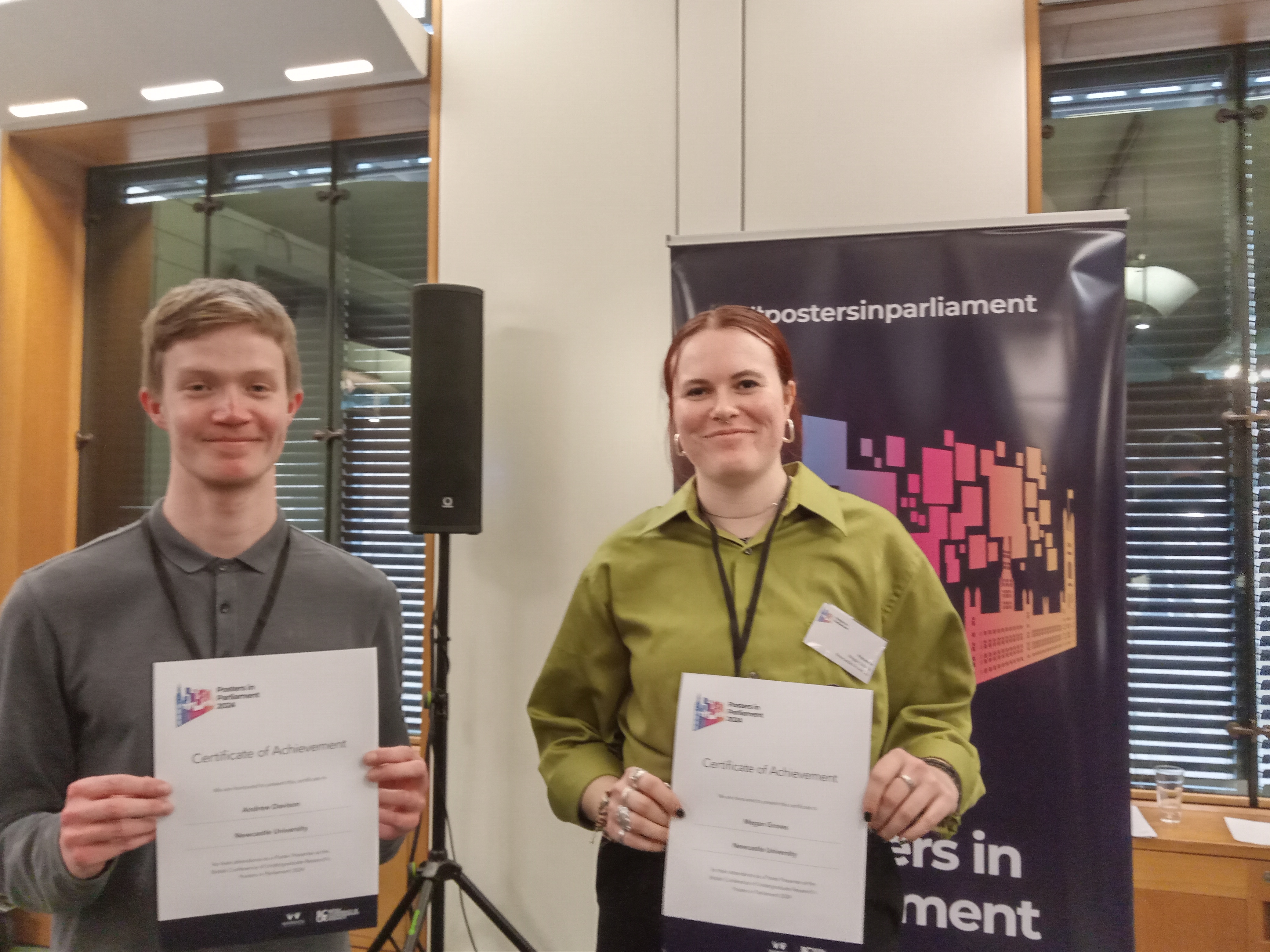
Andrew and Megan with their Posters in Parliament Certificates of Achievement
2023 Posters in Parliament Event
In total, 22 universities attended PiP in 2023. Posters were displayed in the Attlee Suite in Portcullis House, and students discussed their research with MP's, civil servants and policy makers, as well as academics and BCUR students from other universities who attended the event.
Professor Paul Taylor opened the event by welcoming everyone to Parliament and thanked Alec Shelbrooke MP, who was hosting the event.
Alec Shelbrooke, the Conservative MP for Elmet and Rothwell was delighted to host the event and talked about the integral role research plays in the work of Parliament, how important it was to support research students to showcase their work, and he hoped the students were able to use the opportunity to network with their peers and other attendees.
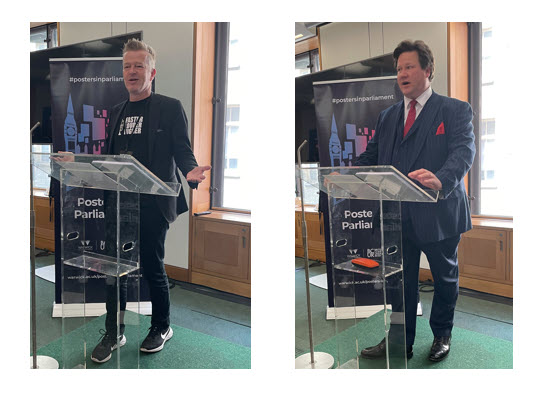
Professor Paul Taylor and Alec Shelbrooke MP addressing students at the 2023 Posters in Parliament Event
Paul Taylor gave an emotional speech in which he expressed his delight that Posters in Parliament was up and running again after a three-year hiatus due to Covid-19. The last event was held in March 2020, just as Covid hit, when the future was uncertain. He congratulated the students for navigating their way though such a challenging period and thanked them for continuing to produce first class research in difficult circumstances.
Ellie Hansen and Maisie Green, who represented Newcastle University at BCUR 2023, were invited to attend the Posters In Parliament event. You can view their posters here:
Ellie and Maisie started their day with a Tour of the House of Lords, during which they witnessed the ancient Speaker's Procession through the Central Lobby into the Chamber of the House of Commons, and learned about how the House of Lords contributes to the process of Government.
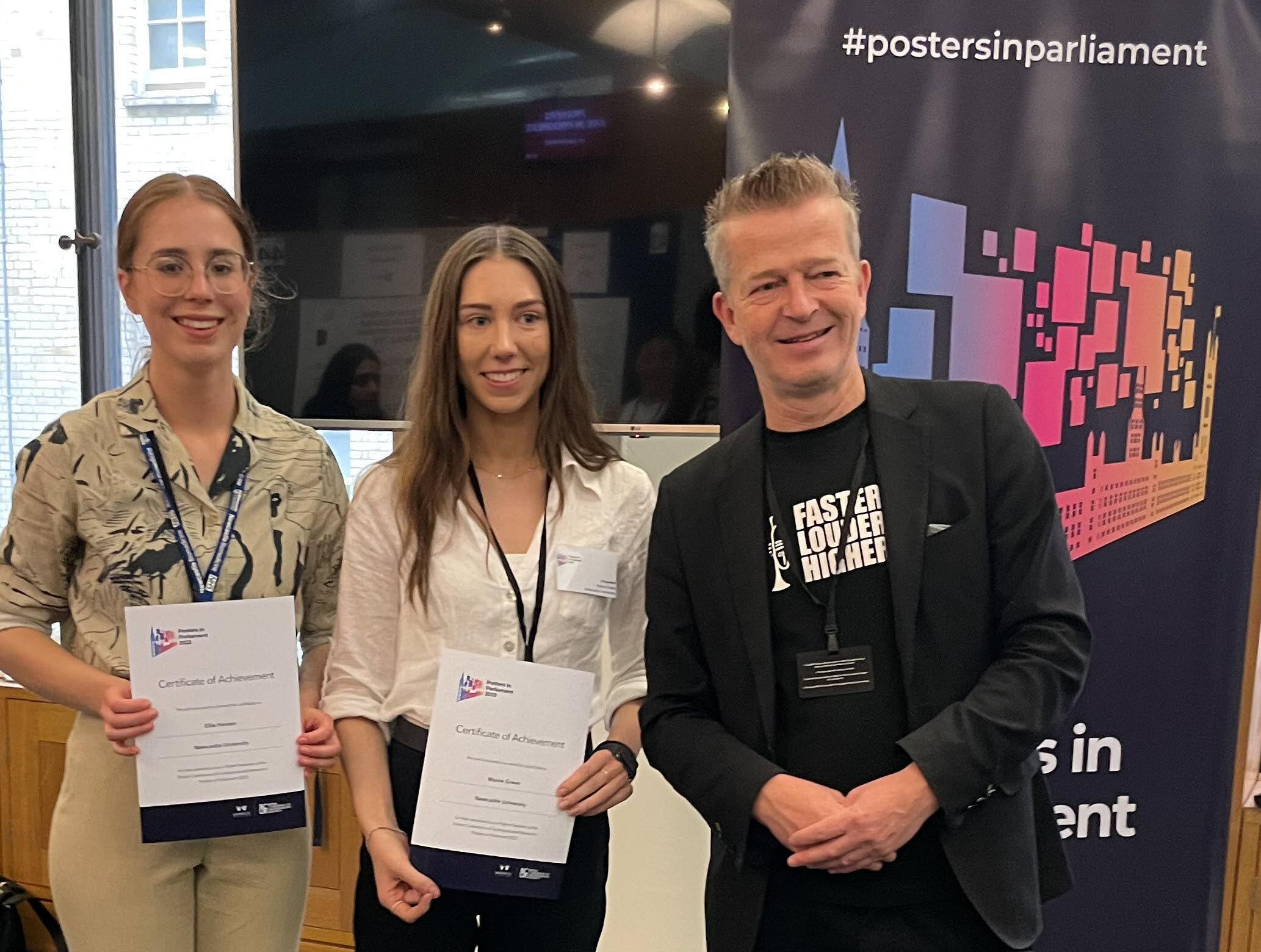
Ellie Hansen and Maisie Green receiving their certificates from Paul Taylor
Matt Western, Shadow Minister for Higher Education and Labour MP for Warwick and Leamington visited the Newcastle University stand and spoke to Ellie and Maisie about their research.
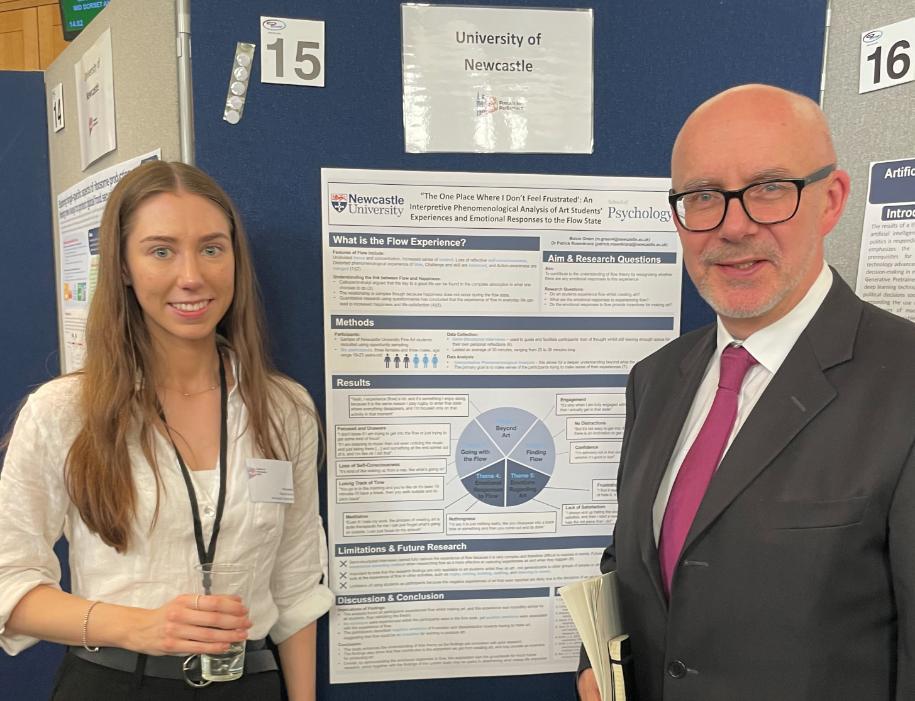
Maisie Green with Matt Western, standing in front of her poster
The event was deemed a huge success and it is hoped that it will be back again in 2024.
Find out more about what it's like to attend Posters in Parliament
Ellie and Maise have shared their experiences of the day, which you can read on our Hear from Students pages.

